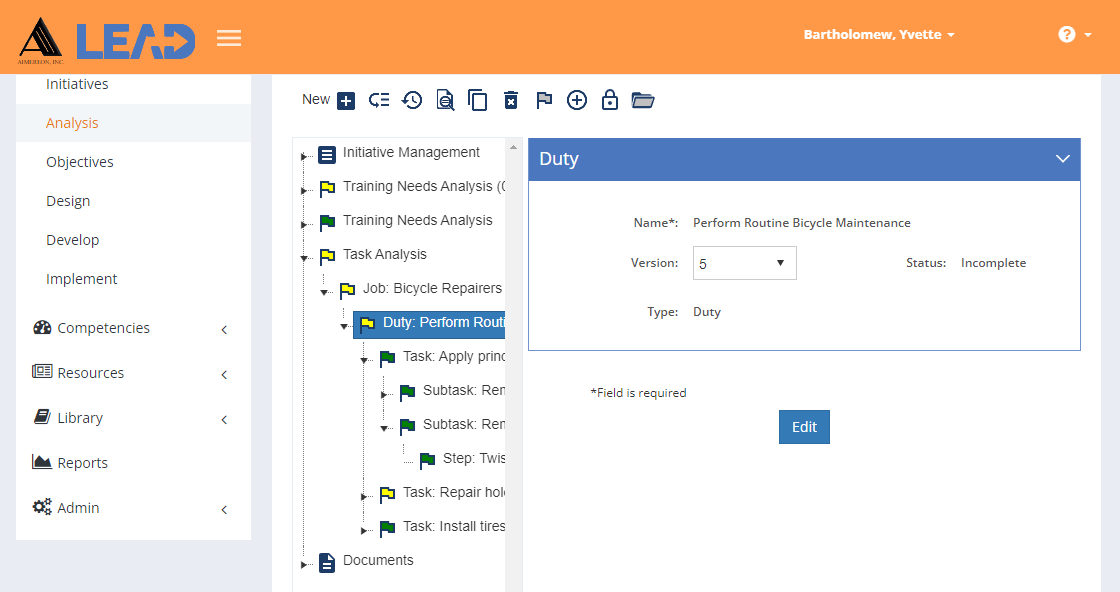What can you do on this screen?
LEAD creates a new duty automatically when you first select from the competencies data. Duties allow you to group tasks. You can rename the automatically created duty to give it a more user-friendly name. and you can add additional duties (from the Job folder) as needed.

Figure 74: Task Analysis > Duty
On the Duty screen you can:
•View the information by clicking on the Duty folder.
•Edit the information.
•Add  tasks that are not selected from the competencies data.
tasks that are not selected from the competencies data.
•Resequence  the tasks below the Duty folder in the tree structure.
the tasks below the Duty folder in the tree structure.
•Preview  the skill hierarchy.
the skill hierarchy.
•Copy  the selected duty into memory.
the selected duty into memory.
Note: Remember to go up one level in the hierarchy to a job before trying to select Paste.
•Paste: Duplicate/Move  a copied task (and any skills under that task) to the selected duty.
a copied task (and any skills under that task) to the selected duty.
Note: You cannot Paste a copied task when the selected duty is Locked.
oDuplicate will create a copy of the task. The Status of the copied task will be updated to Incomplete when it is pasted. You can use the Duplicate option to make copies of the task in other initiatives.
oMove will move the task under the selected duty. When you move a task, the Status of the moved task does not change. You cannot move a task to another initiative.
•Delete  the selected duty (including all tasks, subtasks, and steps under the duty). Once you've selected OK to the confirmation message, an Undo button displays on the bottom left of the screen that allows you to revert the deletion.
the selected duty (including all tasks, subtasks, and steps under the duty). Once you've selected OK to the confirmation message, an Undo button displays on the bottom left of the screen that allows you to revert the deletion.
•Select Explain Flag  to review the reasons the duty has been flagged.
to review the reasons the duty has been flagged.
•Use Create From Competencies  to select competencies to add to your skill hierarchy.
to select competencies to add to your skill hierarchy.
•Lock  the duty to prevent edits from taking place.
the duty to prevent edits from taking place.
•Unlock  a locked duty to allow edits to take place again.
a locked duty to allow edits to take place again.
•Expand  all sub-folders at once down to the step level.
all sub-folders at once down to the step level.
•Select View Comments ![]() to view, edit, or add to the comments.
to view, edit, or add to the comments.
•Select Show History  to review the changes made to the information, including the user name and date/time of saved changes, and revert to an earlier saved revision.
to review the changes made to the information, including the user name and date/time of saved changes, and revert to an earlier saved revision.